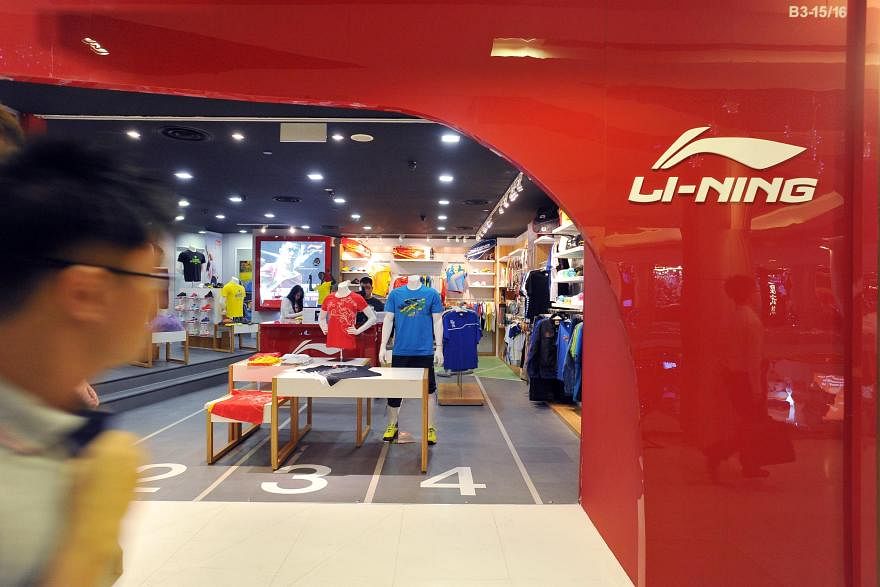[ad_1]
ChINESE billionaire entrepreneur and Olympic champion Li Ning is considering taking his namesake sportswear company private from the Hong Kong stock exchange, four people said, adding to a string of such potential deals in a faltering market.
Li is considering leading a consortium to buy out Li Ning Co Ltd, which had a market capitalisation of HK$52.85 billion (S$9 billion) as of Monday (Mar 11), said the sources.
Li, 61, founded the company a few years after retiring from a decorated gymnastics career in 1988. Along with his family, he owns more than 10 per cent of the company, its 2023 interim report showed.
A number of global and regional private equity firms, including TPG, PAG and Hillhouse Investment, have been tapped to see if they are interested in joining as an investor, two of the people said.
The discussions to take Li Ning Co private are in the early stages and details have not been finalised, said the sources, who declined to be identified because the information is confidential. Li Ning made its Hong Kong debut in 2004.
The company’s shares jumped as much as 20 per cent to HK$24.55 following the Reuters report on Tuesday, the highest since November.
Beijing-headquartered Li Ning Co said in a response to Reuters that it had “not received any information regarding this matter as of now”.
Li did not immediately respond to a request for comment sent via the company.
TPG, PAG and Hillhouse declined to comment.
Stock markets in Hong Kong and mainland China have tanked over the past year amid China’s economic slowdown, a lack of strong stimulus policies and geopolitical tensions.
Hong Kong’s Hang Seng index slumped 14 per cent in 2023, while China’s benchmark CSI 300 index fell 11 per cent.
Li feels his company is undervalued in Hong Kong and would target a hefty premium over its current share price in a potential buyout, two of the sources said.
He does not have an imminent plan to relist his company on the mainland, one of them added.
Li Ning Co was the worst-performing blue-chip stock on the Hong Kong bourse in the past year, down nearly 70 per cent as of Monday, LSEG data showed. That compares with a 25 per cent drop in its main rival, Anta Sports.
Li was regarded as China’s “gymnastics prince” after winning six of the seven gold medals at the 1982 World Cup Gymnastic Competition; he went on to win six medals at the 1984 Los Angeles Olympic Games.
Li Ning Co said in December that it would buy a Hong Kong commercial and retail property from Henderson Land for HK$2.21 billion as its Hong Kong headquarters, which sent its shares to a three-and-a-half-year low on the day of the announcement.
Li also said at the time he planned to repurchase up to HK$3 billion of shares from the open market in the next six months, his first such move in its corporate history, said Citigroup analysts.
In the announcement, the company’s board said it believed its current share price was “below its intrinsic actual value”.
Hong Kong take-private deals
Hong Kong-listed firms have been involved in take-private deals worth US$4 billion so far in 2024, versus US$1.2 billion for all of last year, Dealogic data showed. Buyers often cited undervalued shares as a reason for the deals.
A number of Hong Kong-listed companies, including French skincare company L’Occitane and American luggage maker Samsonite, have also recently engaged with advisers and investors about potential take-privates, separate sources said.
Samsonite declined to comment. L’Occitane did not respond to a request for comment.
Bankers, however, cautioned that take-private deals would remain challenging for management or private equity investors, as financing is costly in the current interest rate environment and fair valuation hard to achieve without a stabilised market.
“There have definitely been more inquiries (about take-private deals) since the end of last year,” said Samson Lo, UBS’ co-head of Asia-Pacific mergers and acquisitions.
“The valuation gap is narrowing, but there is still a gap,” he cautioned. “Financing is still a big challenge for any sizable deals.” REUTERS
[ad_2]
Source link





